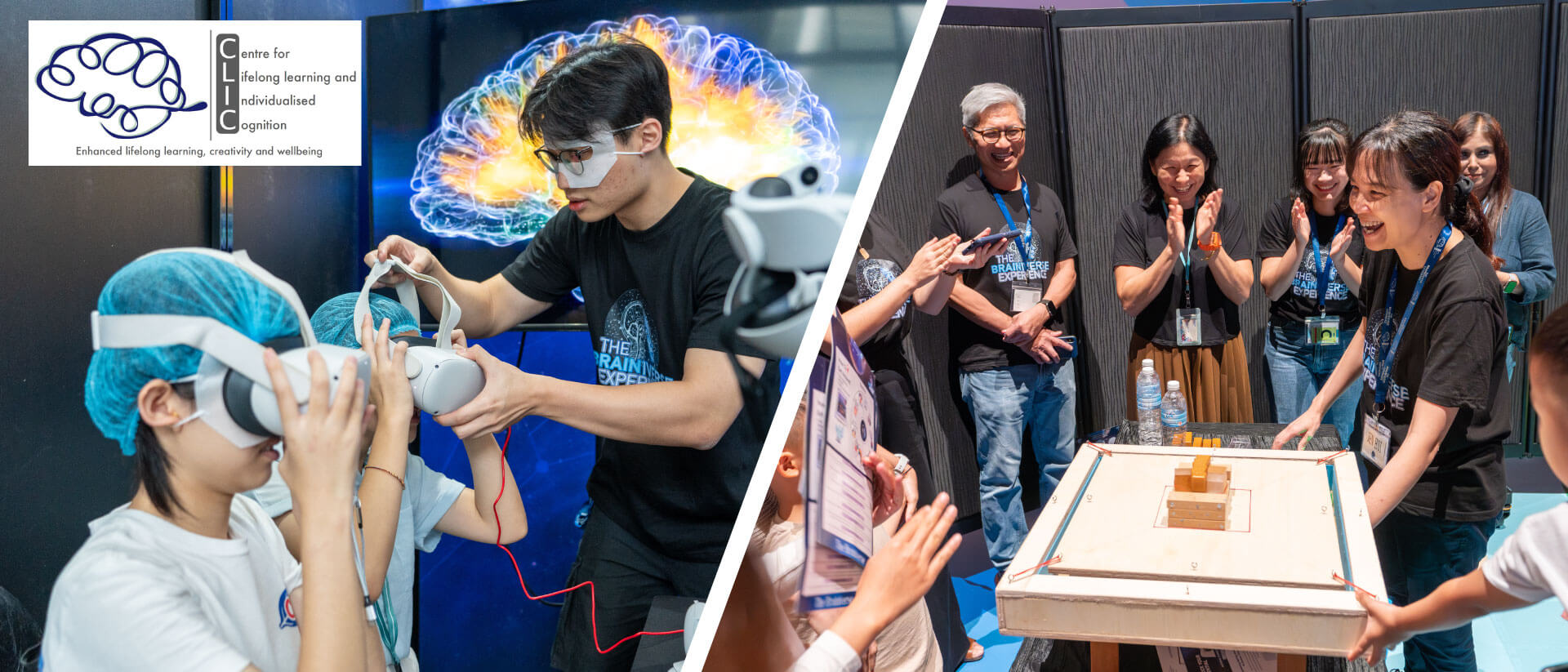Centre for Lifelong Learning and Individualised Cognition (CLIC)
From neuroscience to the practice of learning
The Centre for Lifelong Learning and Individualized Cognition (CLIC) is a programme in the Science of Learning initiative that leverages progress in neuroscience to develop lifelong flexible learning training programs. CLIC aims to improve lifelong learning and cognitive agility through innovative cross-disciplinary research and intends to translate its findings into an integrated model of learning that can be applied in day-to-day life.
Characterisation of Cognitive Flexibility
CLIC adopts a two-phase initiative. The first phase uses scoping studies to understand the construct and outcome validity of cognitive flexibility and the effects of structure learning on cognitive flexibility. The second phase will establish a neurocognitive model of flexible learning, investigate social influences on flexible learning and translate findings into practical training programmes for various populations.
There were several key findings from the first phase of the study. They serve as a characterisation probe for the broader CLIC programme and has significant implications for education and CF intervention strategies.
The team identified a novel cognitive flexibility (CF) factor that reflects the ability to navigate uncertainty, through reinforcement learning modelling of CF tasks involving rule changes or probabilistic feedback. These CF factors predicted critical outcomes like creativity, problem-solving abilities, and academic achievements, independent of general intelligence.
These findings suggest that environments and methods promoting flexible thinking can improve outcomes in reading, math, and creativity (Tong et al., under review).
Training Cognitive Flexibility for Dynamic Engagement
The team have embarked on developing a new training programme set to be implemented in the second phase of the study. This novel training program, known as the Structure Learning-based Cognitive Flexibility Suite (SLiCX), introduces elements such as shifting and reversal learning into the structure learning training paradigm.
The pilot studies will inform how various age groups perform in the new design and allow the team to design intervention programmes based on the results for each age group (adults and adolescents).
The SLiCX team aims to design intervention programmes that will be better suited for each age group and produce an engaging version of the intervention programmes. This will be beneficial as a cognitive flexibility training programme for all ages that can be implemented in school or general lifestyle to aid individuals in the rapidly changing environment.
Watch Prof Trevor Robbins speak on cognitive flexibility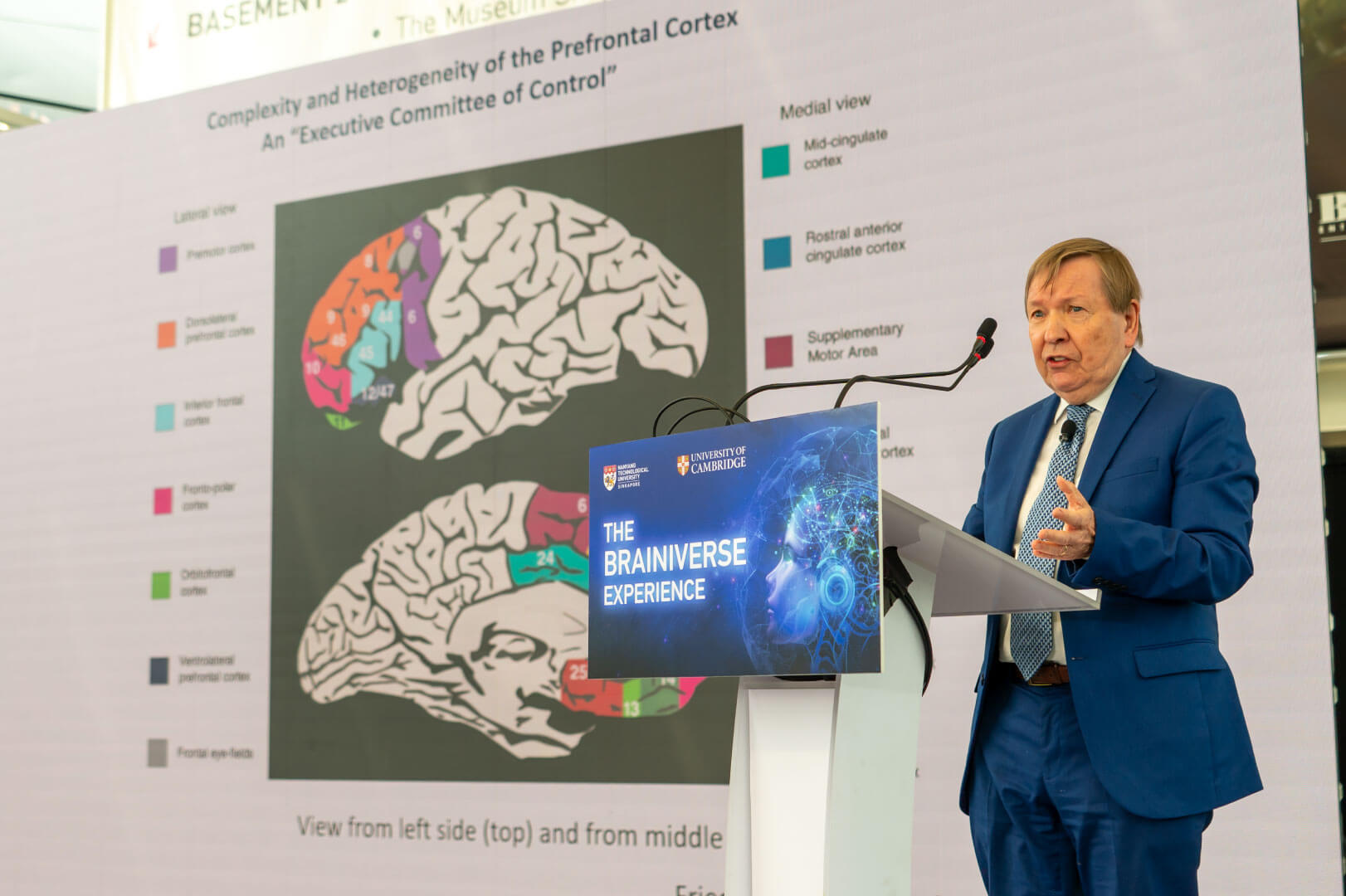
CLIC Public Outreach
1. The Brainiverse Experience
In August 2023, the CLIC team hosted a successful engagement event titled The Brainiverse Experience: Jetting to Better Brain Health & Learning which was targeted towards engaging the public to explore flexible thinking and learning, brain health and overall mental well-being. The two-day event at ArtScience Museum drew over 1500 visitors and gave the public an opportunity to connect with CLIC’s research on cognitive abilities.
The event included talks by Prof Trevor Robbins, and guest speakers Prof David Rowitch and Prof Sarah-Jayne Blakemore. There were also interactive booths from the different workgroups, an earthquake challenge for secondary school students, and an art competition for students with special needs. The Brainiverse Experience was also graced by the British High Commissioner (June 2019 – July 2024), Her Excellency Kara Owen.
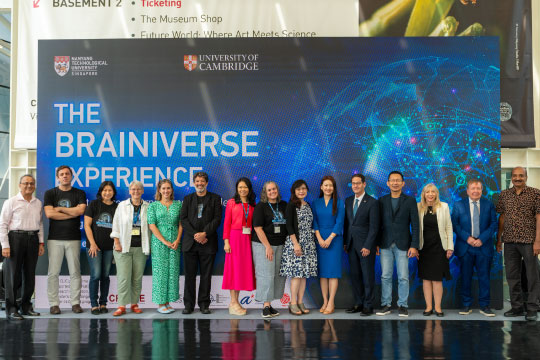
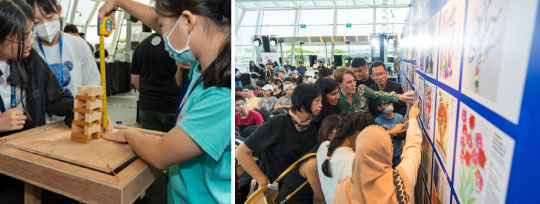
2. CLIC Art book
Following the success of the Brainiverse event and the interest garnered from the art competition, the team produced an art book titled “Neurodiversity: No Brain is the Same” to celebrate the creative talents of these students. The young artists were given a series of prompts to reflect and base their art upon. These prompts were:
– Everyone’s brain is special. What makes your brain special?
– How do you see the world through your mind?
– When I am sleeping, my brain is dreaming
The highly anticipated book was launched on 21 May 2024. Please access the digital copies below.
Digital copy of the art book (English)
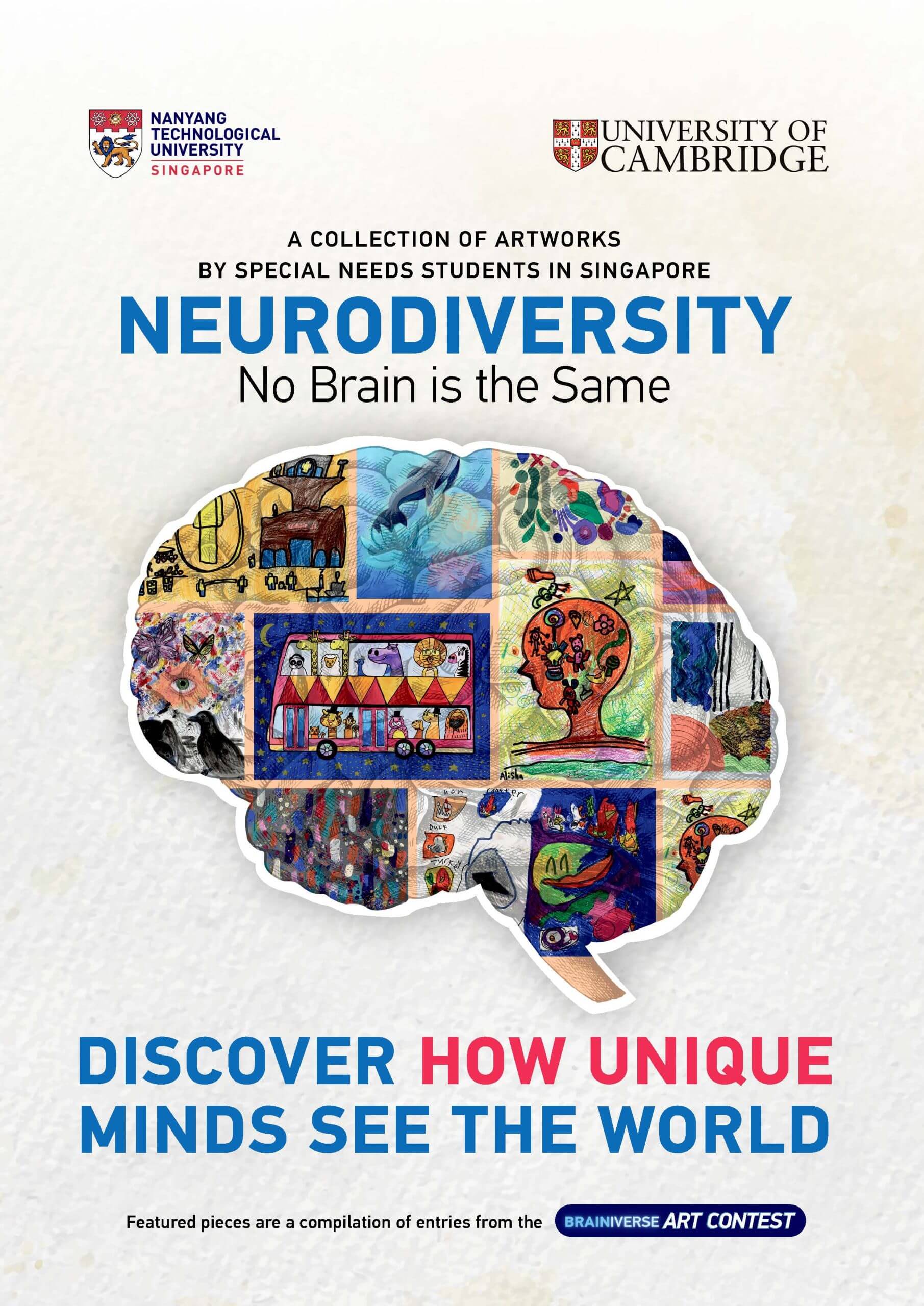
Digital copy of the art book (Malay)
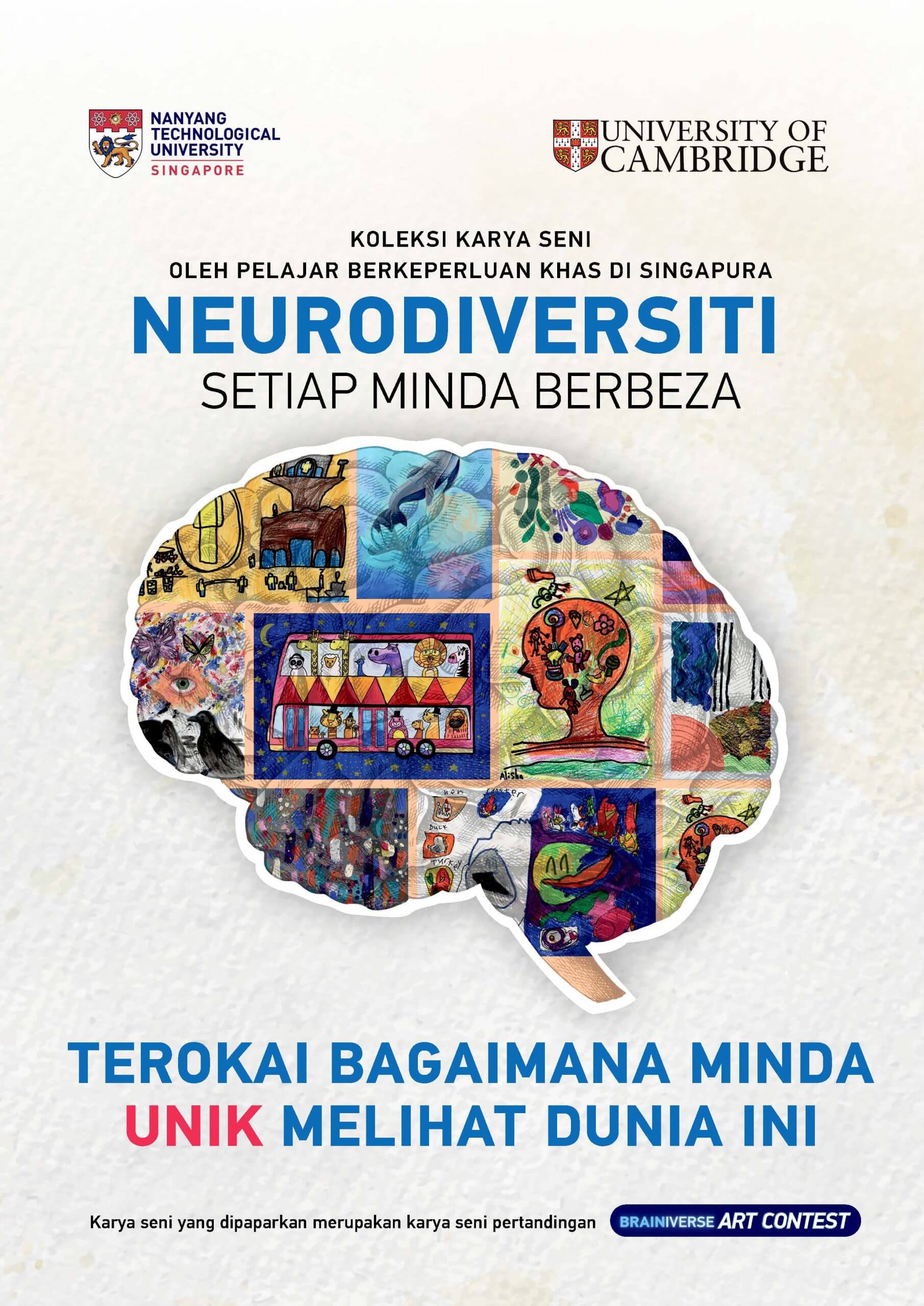
Digital copy of the art book (Mandarin)
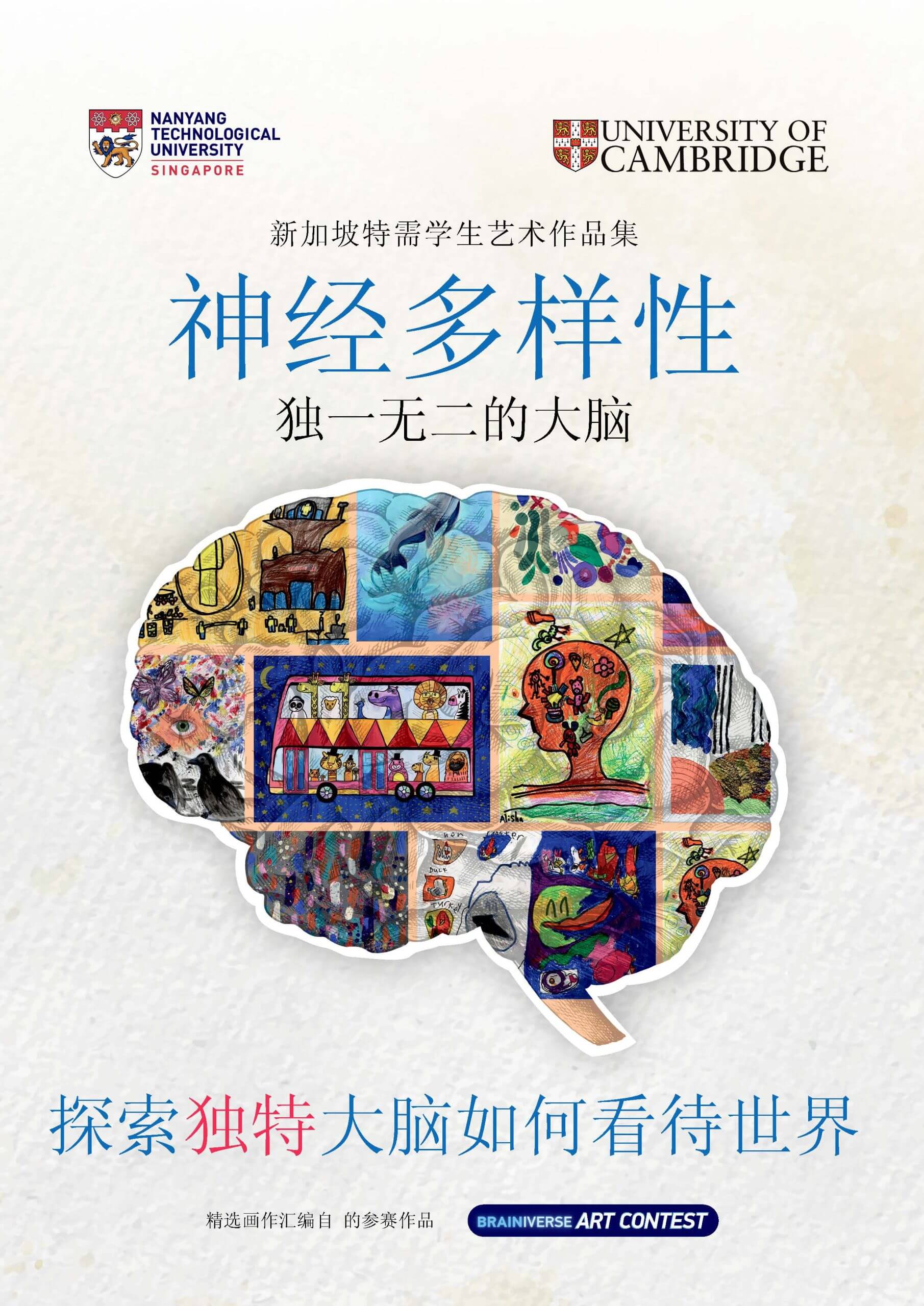
Digital copy of the art book (Tamil)
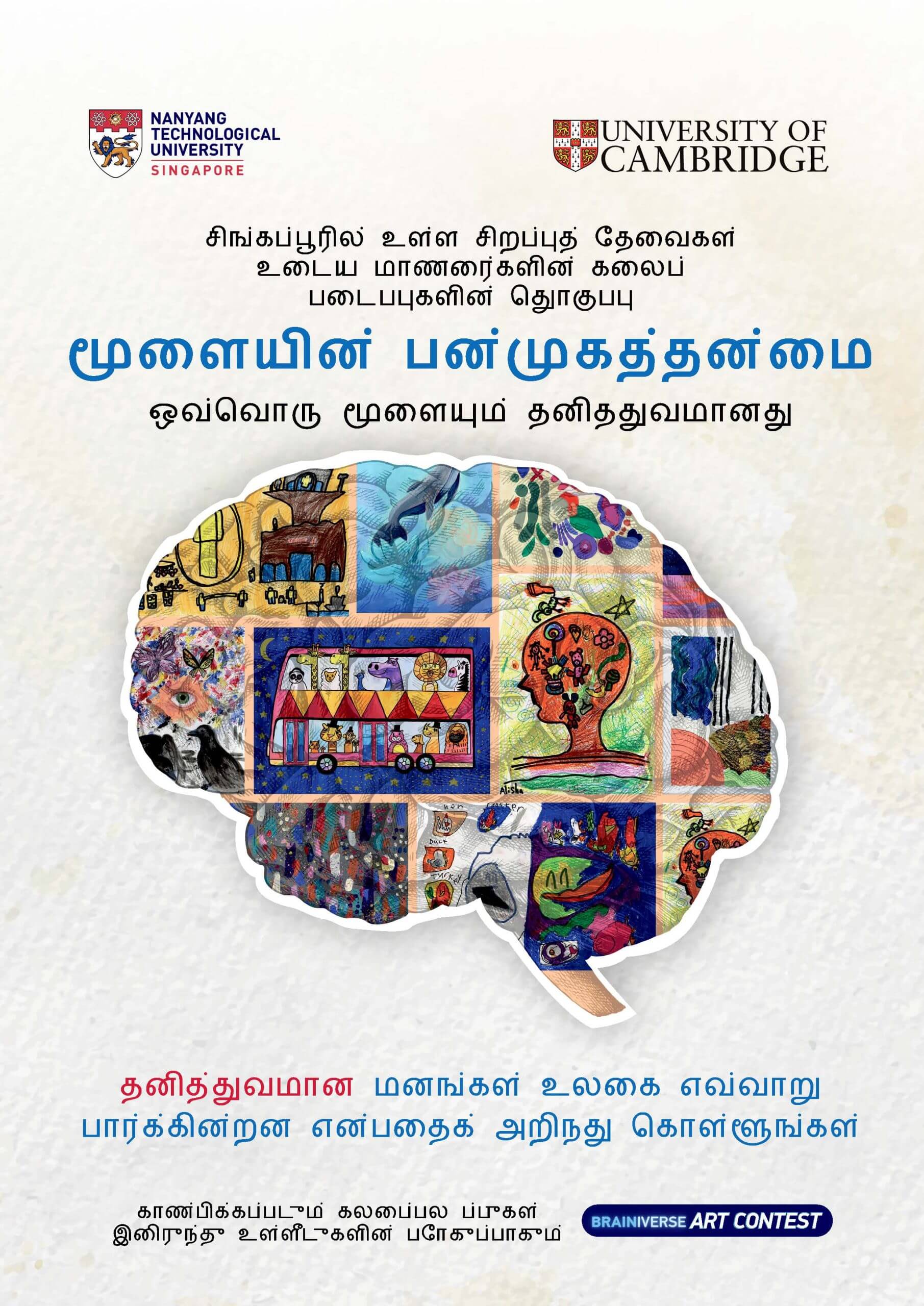
Contact us: CLIC@ntu.edu.sg
This research is supported by the National Research Foundation, Prime Minister’s Office, Singapore under its Campus for Research Excellence and Technological Enterprise (CREATE) programme.
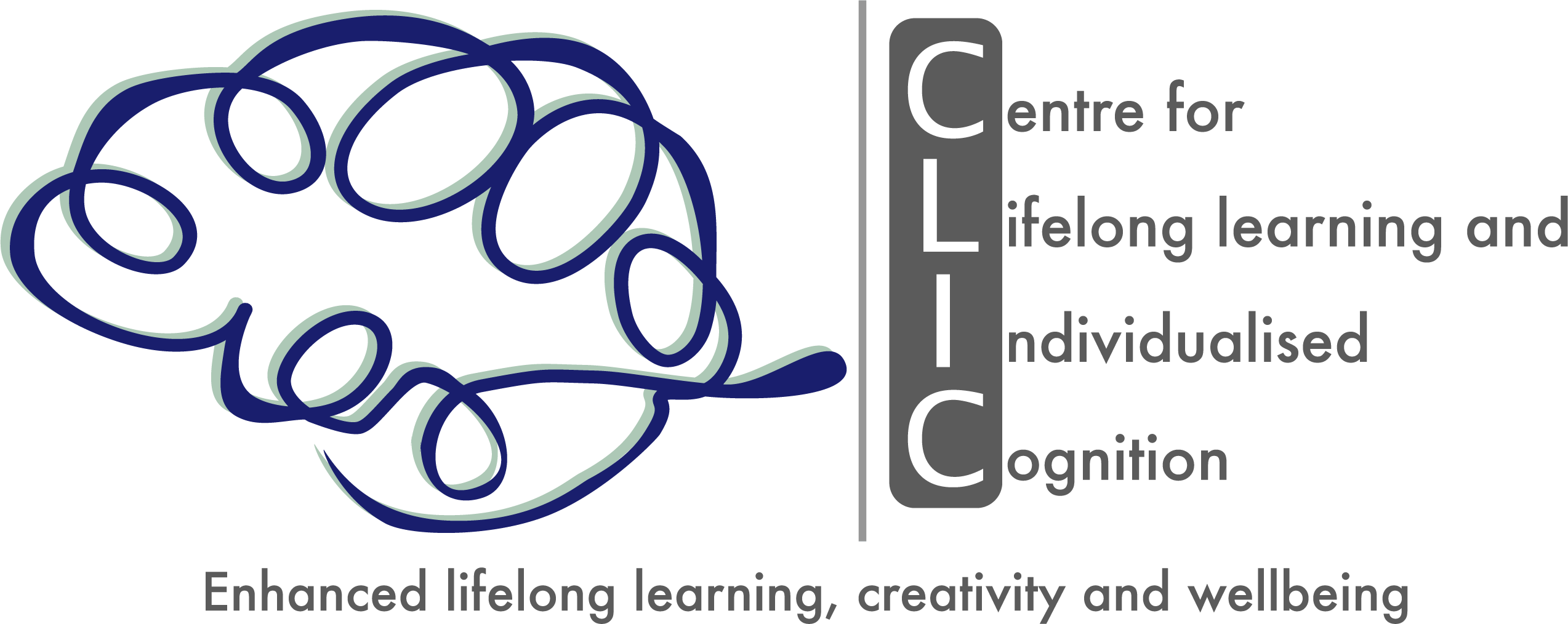
Partners
![]()
Nanyang Technological University
Host Institution
Cambridge Centre for Advanced Research and Education in Singapore (CARES)
Directors
Deputy Directors
Senior Scientific Advisor
Principal Investigators
Assoc Prof Georgios CHRISTOPOULOS

